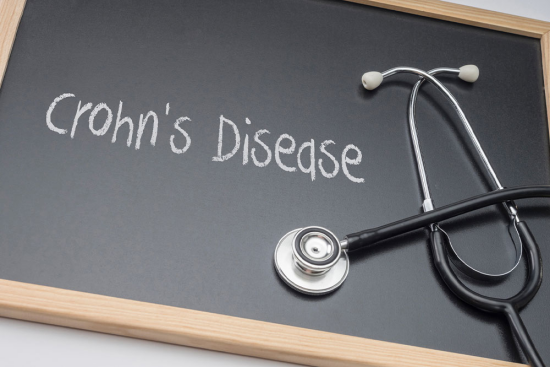Crohn's disease, commonly called regional enteritis or ileitis, is a type of inflammatory bowel disease (IBD) that causes swelling and irritation in the digestive tract. Symptoms include stomach cramps, diarrhea, weight loss, and rectal bleeding. It is a chronic disease with no cure. However, treatment for Crohn's disease can help manage symptoms and enable a healthy life. This article discusses the symptoms, types, treatments, and risk factors for the disease.

Symptoms of Crohn’s disease
Symptoms of Crohn's disease tend to develop gradually. Some symptoms may also worsen over time. It is unusual for symptoms to develop suddenly and quickly, although it is possible.
The first symptoms of the disease include diarrhea, abdominal cramping, blood in the stool, fever, fatigue, loss of appetite, sudden weight loss, a constant feeling of fullness, and frequent urination.
As the disease progresses, symptoms of Crohn's disease may worsen. More severe symptoms may include perianal fistulas that cause pain and discharge near the anus, ulcers that develop anywhere on the body from the mouth to the anus, inflammation of the skin and joints, and anemia, difficulty breathing, or decreased ability to do physical activities.
Types of Crohn's Disease
Crohn's disease can affect multiple areas of the digestive tract.
There are several types of Crohn's disease, including:
Ileocolitis
It is an inflammation of the small intestine and part of the large intestine (also called the colon). The most common type of Crohn's disease is ileocolitis.
Ileitis
Inflammation and swelling of the small intestine (ileum) is called ileitis.
Gastroduodenitis
In this type, the stomach and upper part of the small intestine are affected by inflammation and irritation.
Jejunoileitis
This type is characterized by patchy areas of inflammation in the upper part of the small intestine (called the jejunum).
Basic Treatment Guidelines for Crohn's Disease
There is no cure for this disease, and no one treatment works for everyone. One of the goals of treatments prescribed for Crohn's disease is to relieve the inflammation that causes symptoms. Another goal is to improve long-term outcomes by reducing complications. In the best cases, this can result in symptom relief and long-term remission.
Anti-inflammatory drugs
treatments are often considered in the first-line treatment of inflammatory bowel disease. They are as follows:
Immunosuppressants
This type of treatment can also reduce inflammation, but it affects your immune system and produces inflammatory molecules. For some people, a combination of these remedies is more effective than any one option alone. Immune system suppressants include:
Immunosuppressants
These are some of the common immunosuppressants used to treat inflammatory bowel disease. This type of treatment requires close monitoring by a specialist and regular blood tests to check for side effects, such as reduced resistance to infection and liver inflammation.
Biologics
This form of treatment targets proteins produced by the immune system. Treating Crohn's disease essentially slows down or stops the inflammatory damage.
Antibiotics
Antibiotics can reduce the amount of drainage from fistulas and abscesses and in some cases can cure people with Crohn's disease. Some experts believe that this treatment option helps reduce dangerous intestinal bacteria that may activate the immune system in the intestines, which can lead to inflammation.
Surgery
If dietary and lifestyle changes, prescription medications, or other treatments don't relieve your symptoms, your doctor may consider surgery. Almost half of people with Crohn's disease need surgery. However, surgery does not cure Crohn's disease, it can only help better control symptoms.
The different treatments and avenues for treating Crohn's disease vary from case to case and are determined by a specialist after examining the patient's symptoms and general medical history. It is recommended to see a doctor to find out the treatment that is best for you.
Who is at risk for Crohn's disease?
There are several factors that increase your risk of developing Crohn's disease. Read on to learn more about this:
You are more likely to develop the disease if it runs in your family. Essentially, you are more likely to develop Crohn's disease if a parent, child, or sibling has the disease.
Tobacco use may increase your risk of developing Crohn's disease.
Prescription medications, including birth control pills, antibiotics, and medications like aspirin or ibuprofen, may slightly increase your risk of developing Crohn's disease.
If your diet is high in fat, you may be at a higher risk of developing the disease.
At times, Crohn's disease can be overwhelming. Unexpected flare-ups and routine checkups with a professional medical team can cause disruptions to school, work, and social activities. However, if your symptoms are effectively managed with proper Crohn's disease treatment guidelines, you can live a fulfilling life with the disease.





